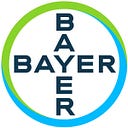June Reese, Bayer Hemophilia Sales Representative
I remember clearly my youngest son Luke’s first day of fifth grade. I pushed him through the double glass doors in a wheelchair and watched as his classmates stared. Their eyes bore into him. Luke hung his head slightly and looked away. His embarrassment at being stared at was palpable. I had witnessed that same look of pity on friends’ faces when his brother Joey was on bed rest for an iliopsoas, or hip bleed.
It occurred to me then that we, as a culture, do not tend to like facing chronic illness or perceived weakness. We hate brokenness. We are taught to value newness and revere independence. We spend our lives masking our difficulties, covering up vulnerability and loneliness. Yet, sometimes our broken parts refuse to be hidden.
Hemophilia forces us out of hiding. My boys are stoic, and when they were younger, they often hid their bleeds. They rarely — if ever — complained. They did not want pity, but rather they wanted to be “normal” and fit in.
When the doctors first told me that my son Joey had severe hemophilia I was scared. Through tears, as the doctors gathered us in a small conference room, I asked “Will my son die from this?” The doctor’s response still echoes in my head, “Hemophilia is manageable.”
The first several years after his diagnosis, I cried often. Then, over time, we adjusted. Eventually I got pregnant again and this time, after Luke’s birth, my doctor asked everyone to leave the room and she closed the door. I knew what was coming. My heart broke. She cried with me. I was surprised at my own tears. Wasn’t I prepared for this? Hadn’t I known this was a possibility? Wasn’t I done with this thing called grief?
12 Years and Counting — What I’ve Learned
· When there is a diagnosis of chronic illness, grief is always present. The great chasm between where we find ourselves and “normal” can feel immense. Once you adjust and come to terms with the diagnosis, the grief recedes.
· This grief takes different shapes at different times and stages, it ebbs and flows, but it never really goes away completely. It bubbles up again if loved ones have pain from a joint bleed, or when infusions take long or we miss the vein and have to poke multiple times, or when other kids don’t choose your sons for their team, or when your teenager wonders if girls will want to date him because of his hemophilia.
· The word “spontaneous” takes on a different meaning. It now meant I couldn’t predict or control when something might occur inside one of my babies. It meant every headache was suspect. Every belly ache had to be watched carefully. In our world, “spontaneous” was a dark monster lurking under the bed.
· Life can be richer once we accept the reality. We learned to adapt. We’ve come to appreciate the good. We rejoice in our community and those who understand the struggle. We grew to value our care providers, our physicians and nurses, the physical therapist and social workers, our foundation directors, and the companies like Bayer who strive to advance medicine and provide us support through various programs.
And, above all, I’ve learned that the hemophilia community is a powerful one. We learned to utilize the resources available and soak up all the education we can. One of the programs that helped us early on was Parents Empowering Parents (PEP). We gathered and spent the weekend being educated on hemophilia and feeling loved, knowing we weren’t alone on the journey. I still remember that first evening of the PEP weekend and walking into a room where other parents understood the fear. Soon after, I became a mentor to other new moms in my town.
The grief began to recede as I helped others feel less alone on their journey and our hemophilia “family” grew. I never wanted any person to feel alone in managing the disease or the difficult emotions that came along with the diagnosis. I decided I wanted to be a part of this community by striving to make a difference in the lives of others.
I am fortunate and proud to work for a company that strives to improve the quality of life for patients and families and support programs like PEP that help those learning to manage and navigate this disease. You can learn more about PEP at www.livingwithhemophilia.com.
Someone once said “an obstacle is merely a stepping stone.” Together, as a community, we can bravely forge ahead.
